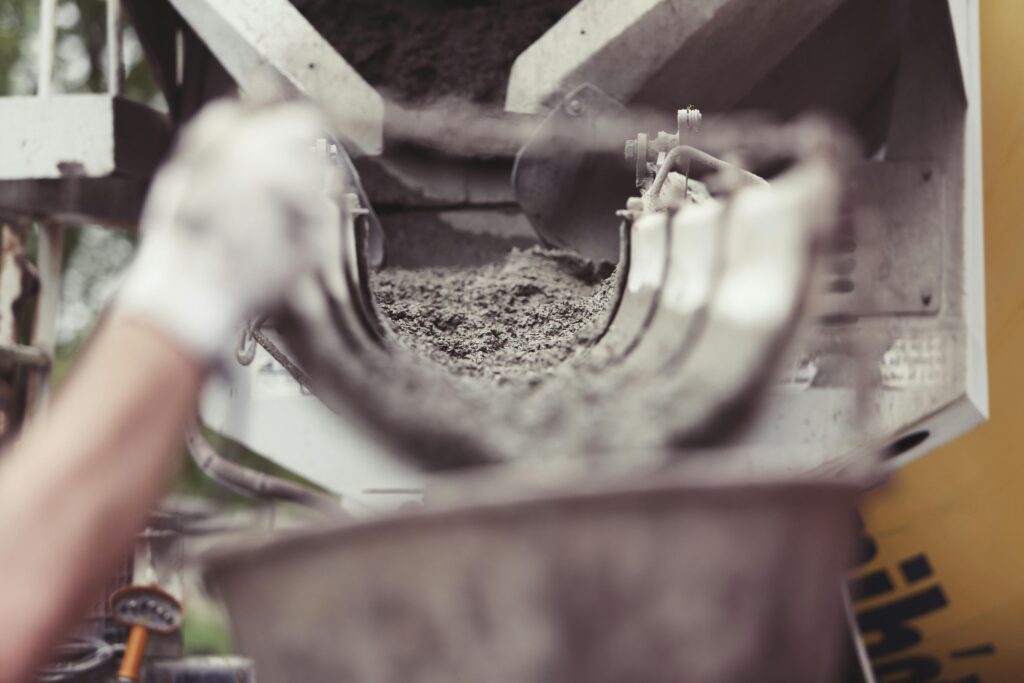Concrete is the backbone of modern infrastructure. From towering skyscrapers and bridges to residential homes and sidewalks, concrete services play a vital role in constructing and maintaining the built environment. This article explores what concrete services are, their importance, various types, benefits, and what to consider when hiring a concrete contractor.
What Are Concrete Services?
Concrete services encompass a broad range of construction solutions that involve the use of concrete as a primary material. These services include everything from mixing and pouring to finishing, repairing, and resurfacing concrete structures. Whether it’s for commercial, industrial, or residential projects, skilled concrete professionals ensure durability, strength, and aesthetic appeal.
The Importance of Quality Concrete Work
Concrete is known for its strength, fire resistance, and longevity. However, poorly executed concrete work can lead to structural issues, increased maintenance costs, and safety hazards. High-quality concrete services ensure:
- Structural Integrity: Properly mixed and cured concrete supports heavy loads without cracking or deteriorating.
- Safety: Well-installed concrete surfaces reduce trip hazards and other safety risks.
- Longevity: Quality concrete structures can last 30–100 years with minimal maintenance.
- Aesthetic Appeal: Skilled finishing techniques can transform dull surfaces into decorative features.
Common Types of Concrete Services
Concrete services vary depending on the project requirements. Below are some of the most common services offered by concrete contractors:
1. Concrete Pouring and Slabbing
Pouring concrete is one of the most fundamental tasks in construction. Contractors create forms, mix concrete to the required specifications, and pour it into molds for foundations, floors, and other structures.
2. Concrete Driveways
Concrete driveways are durable and low-maintenance compared to asphalt or gravel alternatives. They can be customized with decorative finishes such as stamped patterns, colored concrete, or exposed aggregate.
3. Concrete Patios and Walkways
Outdoor areas like patios and walkways benefit from concrete’s resilience. These surfaces can be shaped and styled to match a home’s aesthetic while withstanding the elements year-round.
4. Concrete Foundations
Foundations are critical to any building’s stability. Concrete foundation services include slab-on-grade, T-shaped, and frost-protected foundations depending on soil conditions and structural demands.
5. Decorative Concrete
Decorative concrete adds visual interest to functional surfaces. Options include:
- Stamped Concrete: Imitates textures like stone or brick.
- Stained Concrete: Adds color using acid or water-based stains.
- Polished Concrete: Provides a glossy, modern finish.
6. Concrete Repair and Resurfacing
Over time, concrete can develop cracks, spalls, or discoloration. Contractors offer repair and resurfacing services to restore the appearance and strength of existing structures.
7. Concrete Retaining Walls
Concrete retaining walls are used in landscaping and erosion control. They must be structurally sound and properly drained to handle soil pressure.
8. Concrete Demolition and Removal
Removing old or damaged concrete is often necessary before beginning new projects. Contractors use heavy machinery to break down and safely dispose of concrete debris.
Benefits of Choosing Concrete for Construction
Concrete remains the material of choice for many construction applications due to its numerous advantages:
Durability and Strength
Concrete is one of the strongest building materials available. It withstands heavy loads, extreme weather, and fire—making it ideal for structural applications.
Cost-Effectiveness
Though initial installation can be higher than other materials, concrete’s longevity and minimal maintenance requirements make it a cost-effective solution in the long run.
Energy Efficiency
Concrete has excellent thermal mass, which helps regulate indoor temperatures. This can lower heating and cooling costs in homes and buildings.
Versatility
Concrete can be molded into virtually any shape and finished in various textures and colors. This makes it suitable for both structural and decorative purposes.
What to Look for in a Concrete Contractor
Hiring the right contractor is essential for a successful concrete project. Here are some factors to consider:
Experience and Credentials
Look for contractors with years of experience and the necessary licenses and insurance. A seasoned professional understands local building codes and best practices.
Portfolio and Reviews
Check the contractor’s past work and read customer reviews. Photos of completed projects give insight into their capabilities and style.
Clear Estimates and Timelines
A reputable contractor provides a detailed estimate outlining materials, labor, and timeline. Transparency helps avoid surprises later on.
Warranties and Guarantees
Many contractors offer warranties on their work. This ensures peace of mind and accountability in case issues arise after completion.
Innovations in the Concrete Industry
The concrete industry continues to evolve with new technologies and materials that improve performance and sustainability.
Green Concrete
Green concrete uses recycled materials and reduces carbon emissions associated with cement production. This eco-friendly option is gaining popularity in modern construction.
Self-Healing Concrete
Emerging materials now include bacteria or special chemicals that activate when cracks form, effectively repairing the concrete without human intervention.
Fiber-Reinforced Concrete
This type of concrete incorporates fibers like steel, glass, or synthetic materials to increase tensile strength and reduce cracking.
Maintenance Tips for Concrete Surfaces
While concrete is low-maintenance, taking care of it can extend its life and keep it looking great.
- Seal Surfaces: Apply a concrete sealer every few years to protect against moisture and stains.
- Clean Regularly: Sweep and wash surfaces to prevent dirt and debris buildup.
- Address Cracks Promptly: Small cracks should be filled quickly to prevent them from expanding due to freeze-thaw cycles.
- Avoid Harsh Chemicals: Use non-corrosive deicers in winter and avoid spilling oil or acids on concrete surfaces.
Residential vs. Commercial Concrete Services
While both residential and commercial projects use concrete, their requirements differ:
- Residential Projects: Often focus on driveways, patios, walkways, and home foundations. These projects may also include decorative finishes.
- Commercial Projects: Involve larger-scale jobs like parking lots, office buildings, sidewalks, and structural foundations. These typically require more manpower and specialized equipment.
Conclusion: Building the Future with Concrete Services
Concrete services are essential to the creation of strong, reliable, and attractive structures. Whether you’re installing a new driveway, laying a foundation for a home, or designing a decorative patio, working with a skilled concrete contractor ensures lasting results. With innovations like green concrete and self-healing technologies, the future of concrete construction is not just strong—it’s sustainable and smart.
If you’re planning a construction or renovation project, don’t underestimate the importance of expert concrete services. A solid foundation—literally and figuratively—starts with choosing the right team and the right material.



Comments